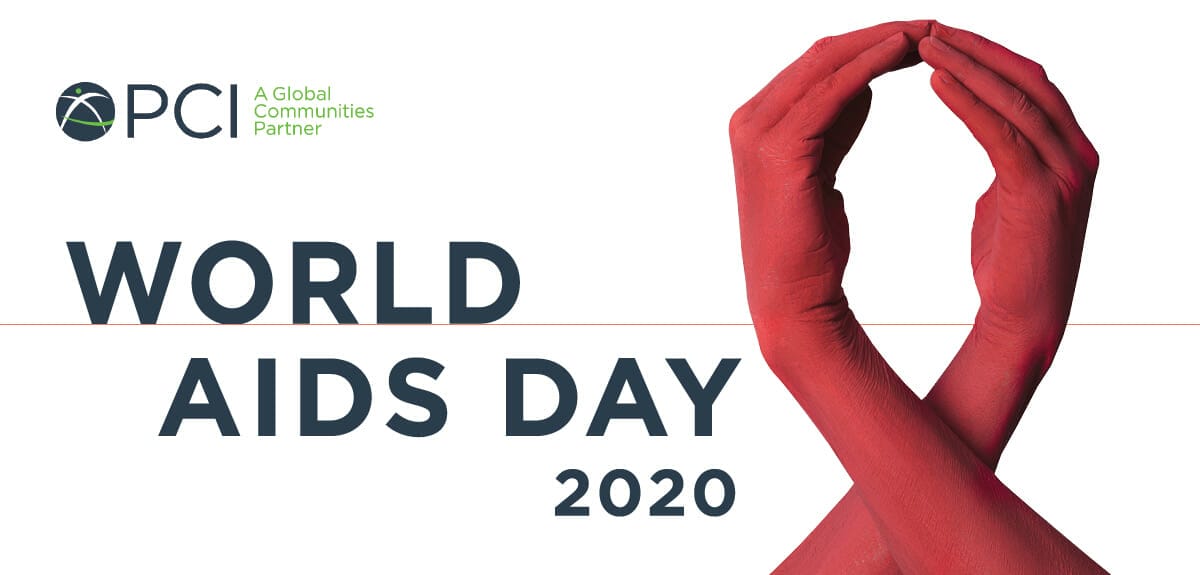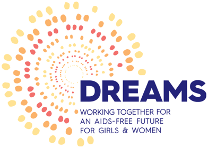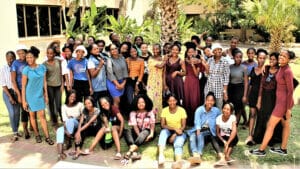News > Blog
Dreaming of and Driving toward an AIDS-free Botswana
Published 12/01/2020 by Global Communities


DREAMS logo
Ask any adolescent girl or young woman what she wants to be when she grows up and the list will be as endless and unique as the girl herself. Some will say doctors and nurses or pilots and accountants, while others will want to make their mark as educators, entrepreneurs or celebrities in music, art and sports. Regardless of their replies, or starting points, each girl deserves the chance to pursue her ambitions with all the momentum of the world behind her. Instead, far too many face serious challenges related to discrimination, violence and exploitation from the moment they are born.
Across Africa, 28 million girls between the ages of 6 and 15 years old are not in school and may never set foot inside a classroom due to poverty and gender inequalities that relegate them to staying home. Their plight becomes even more dire as they get older. UNAIDS estimates that in sub-Saharan Africa, three in five new HIV infections among 15- to 19-year-olds are among girls. This same region accounts for more than 90% of deaths worldwide from AIDS-related illness among adolescents. Only 3 in 10 young women in sub-Saharan Africa have basic knowledge about how to protect themselves from HIV.
The numbers are clear. The need to focus on and reach adolescent girls and young women with interventions that are delivered in a manner they understand is urgent—not only for their own health, well-being and development but for the health and well-being of the next generation of children as well. We must address the structural issues that predispose them to new HIV infections and protect them from other harmful outcomes. We must also address the myriad risks of children born of HIV-positive young/child mothers.
To that end, Project Concern International (PCI) a Global Communities partner, has been implementing the DREAMS program in two districts of Botswana. DREAMS stands for Determined, Resilient, Empowered, AIDS-free, Mentored and Safe. The program is funded by the U.S. President’s Emergency Plan for AIDS Relief (PEPFAR) through the U.S. Agency for International Development and aims to reduce rates of HIV among adolescent girls and young women in the highest HIV burden countries.
Since 2018, PCI has reached more than 16,500 of the most vulnerable adolescent girls and young women (aged 10-24 years) in Botswana with life-saving, age-appropriate and evidence-based social and health interventions through the DREAMS program.

Young women from Gaborone, Botswana, gather after completing a three-day training at PCI/Botswana to become DREAMS mentors. In 2019, PCI/Botswana served 3,078 adolescent girls and young women through the program. Photo by Daniel Watts/PCI
The transition from childhood into adolescence and further into adulthood and independence can be traumatic for many girls and young women. During this process, many girls are expected to take on more family responsibilities and thus receive fewer opportunities to explore their education and potential. As their worlds begin to shrink, they become increasingly isolated with limited or no access to social networks that allow them to connect with others. This can lead to low self-esteem and increased vulnerability when they do encounter the outside world.
Recognizing this, DREAMS offers adolescent girls and young women the opportunity to attend either virtual and/or in-person peer groups dubbed “fusion safe spaces.” On a weekly basis, trained community mentors deliver knowledge and skills content relevant to HIV and violence prevention in a layered approach. Beyond health lessons, the program addresses structural drivers that increase adolescent girls’ and young women’s risk to HIV infection and sexual violence, including gender inequality, lack of education and limited or lack of access to age-appropriate information on sexual and reproductive health rights and risks.
Every effort is made to define empowerment and resilience in terms understood by the girls, as DREAMS facilitators start from where the girls are and together determine their paths for support. Outreach efforts also include people and social support systems around the girls in schools, at home and within the broader communities, such as parents, caregivers and sexual partners.
Building on the education, psychosocial and cognitive/life skills of DREAMS participants in a secure environment as well as their confidence, leadership abilities and financial knowledge is as crucial as helping these girls regain their voices—not only to fight for themselves but for others like them.
Take Gao, for example. Gao grew up in a dysfunctional family with little parental guidance and love. Abandoned at a young age, she faced significant obstacles on the streets of Botswana, including sexual violence, drug abuse and joblessness. Like Gao, women who have been physically or sexually abused report higher rates of mental health issues, including depression and anxiety, higher use of alcohol and less control over sexual decision-making. The despair Gao felt was so intense she once attempted suicide.
After joining the DREAMS program, Gao said she felt as if she was given the chance at a new life. With encouragement and support from her mentor as well as hard work and initiative, she was able to move toward a healthier, more hopeful future. At 20 years old, she now serves as a DREAMS mentor herself, reaching hundreds of adolescent girls and young women who have survived experiences similar to her own or sometimes worse.
DREAMS, therefore, is not a program or an event but a powerful movement of thousands of adolescent girls and young women who are resourced and ready to face the world. We may not win every battle for every adolescent girl and young woman, but we surely equip them with the knowledge, skills and competence needed to come out more resilient on the other side.
As we pause to recognize this year’s World AIDS Day, let us reflect on the struggles that Gao and millions of other women like her experience every day but also their capacity to overcome and succeed with the right services and support in place. While there is still a lot more work to be done by individuals, families, communities, governments and the global community to achieve an AIDS-free Botswana and world, we are rising to the challenge and making a difference—one dreamer at a time, every day.
Written by Betty Adera, Senior Technical Advisor for HIV/AIDS and Health
 Betty Adera is the Senior Technical Advisor for HIV/AIDS and Health at PCI, a Global Communities Partner, with a specific focus on projects in Botswana and Zambia. She has more than 20 years of experience in HIV and health program implementation as well as extensive experience in the technical areas of orphans and vulnerable children, HIV/AIDS, and sexual and reproductive health and rights. Learn more about PCI’s HIV treatment and prevention efforts in Botswana and Zambia.
Betty Adera is the Senior Technical Advisor for HIV/AIDS and Health at PCI, a Global Communities Partner, with a specific focus on projects in Botswana and Zambia. She has more than 20 years of experience in HIV and health program implementation as well as extensive experience in the technical areas of orphans and vulnerable children, HIV/AIDS, and sexual and reproductive health and rights. Learn more about PCI’s HIV treatment and prevention efforts in Botswana and Zambia.





